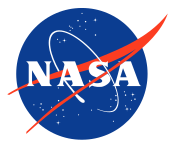: "NASA: Pioneering the Final Frontier of Space Exploration"
Introduction:
Introduce NASA (the National Aeronautics and Space Administration) as the premier space agency of the United States and one of the leading space exploration organizations globally.
Highlight the organization's mission to explore and understand space, conduct cutting-edge research, and drive advancements in science and technology.
The History of NASA:
Discuss NASA's origins, established on July 29, 1958, in response to the Soviet Union's launch of Sputnik, which marked the beginning of the space race.

Mention key milestones and achievements, such as the Apollo Moon landings, space shuttle program, and robotic missions to other planets.
NASA's Core Objectives:
Explain NASA's primary objectives, which include space exploration, scientific discovery, and advancements in aeronautics.
Discuss how these objectives have evolved over time to align with the changing landscape of space exploration.
The Apollo Missions:
Delve into the historic Apollo program, highlighting the first successful Moon landing, Apollo 11, in 1969, and the iconic words spoken by astronaut Neil Armstrong, "That's one small step for man, one giant leap for mankind."
Discuss the scientific and cultural impact of the Apollo missions.
Space Shuttle Program:
Explore NASA's space shuttle program, which operated from 1981 to 2011, providing reusable access to space.
Mention key missions, including the launch of the Hubble Space Telescope and the construction of the International Space Station (ISS).
Mars Exploration:
Discuss NASA's ongoing exploration of Mars, including the successful landings of rovers like Curiosity and Perseverance, and the search for signs of past or present life on the Red Planet.
Robotic Missions:
Highlight NASA's various robotic missions, such as the Voyager missions, which have reached the far reaches of our solar system, and the New Horizons mission, which provided valuable data about Pluto.
Discuss other missions to study planets, moons, and celestial bodies within and beyond our solar system.
The International Space Station (ISS):
Explain NASA's involvement in the ISS, a collaborative effort with international partners, where astronauts conduct research and experiments in a microgravity environment.
Discuss the importance of the ISS for scientific discovery and international cooperation in space exploration.
Future Endeavors:
Explore NASA's vision for the future, including the Artemis program aimed at returning astronauts to the Moon and the eventual journey to Mars.
Highlight the innovations and technologies that will drive these ambitious missions.
Challenges and Advancements:
Address the challenges and risks associated with space exploration, including human health in space and environmental sustainability.
Discuss the technological advancements driven by NASA research that have found applications on Earth.
Conclusion:
Summarize NASA's unparalleled contributions to space exploration, scientific discovery, and technological advancement.
Emphasize the agency's commitment to pushing the boundaries of human knowledge and expanding the frontiers of our understanding of the cosmos.